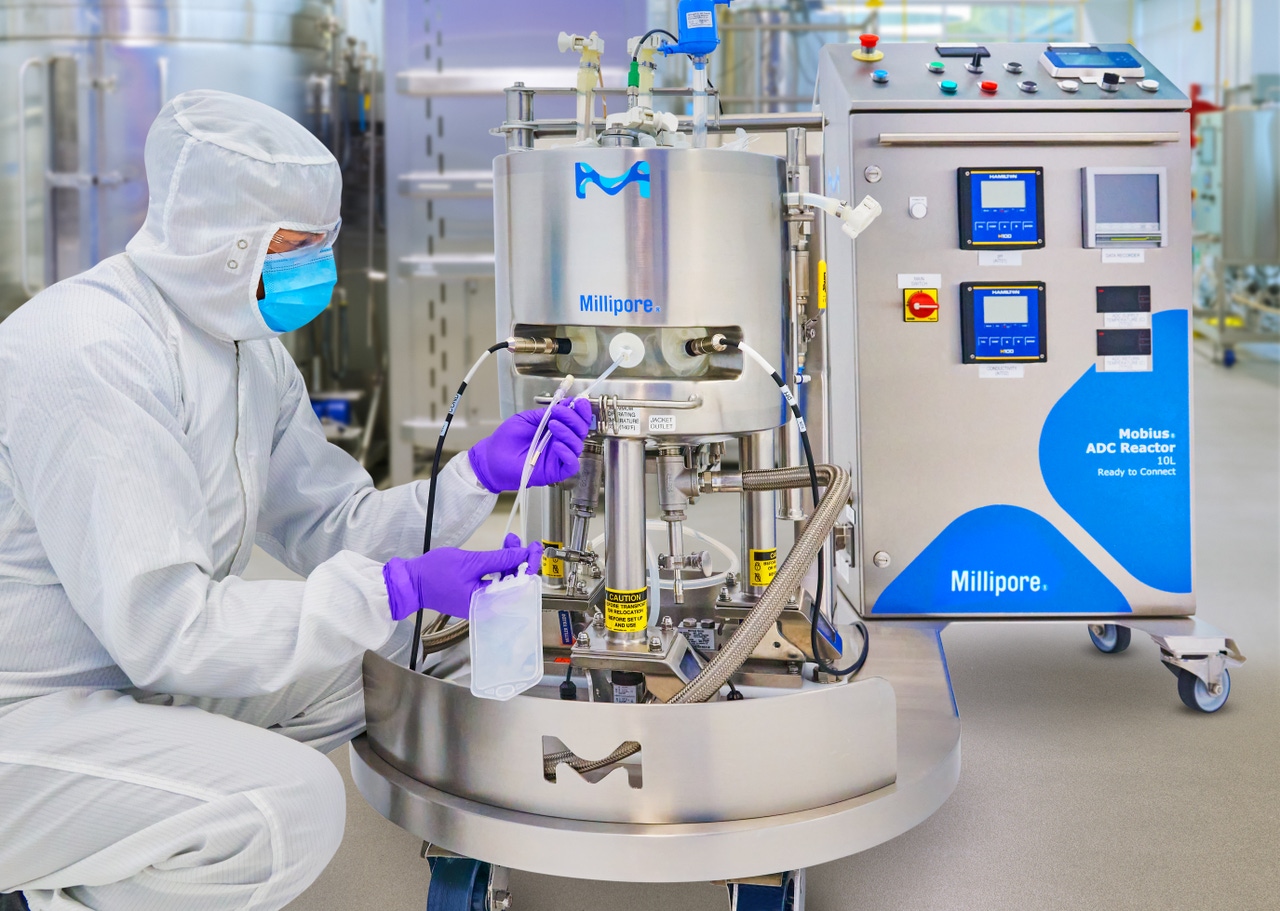
MilliporeSigma, the life sciences division of Merck, has launched a single-use reactor to manufacture antibody drug conjugates (ADCs). Single-use systems use disposable components that are sterile and pre-validated, which reduces the risk of cross-contamination between batches.
According to the contract development and manufacturing organization (CDMO), the Mobius ADC reactor is a scalable single-use mixer specifically designed for ADC manufacturing. It meets the requirements of linking the necessary components, enabling biopharmaceutical companies to produce their critical therapies faster and safer, a spokesperson for the firm told us.
Additionally, the bioreactor’s single-use assemblies are made of Ultimus Film technology, which provides enhanced bag strength, improved durability, and leak resistance.
“Current ADC production methods use stainless steel or glass reactors which require labor-intensive and costly cleaning procedures. Our new Mobius ADC Reactor is the first scalable single-use mixer specifically designed for ADC manufacturing,” Sebastian Arana, head of process solutions, MilliporeSigma told BioProcess Insider.
“Additionally, bag leaks have long been a top pain point for biomanufacturers, with the cost of a single leak ranging from €45,000 ($50,000) to €511,000 ($564,000). Our Ultimus Single-Use Process Container Film provides extreme durability and leak resistance for single use assemblies used for bioprocessing liquid applications. Our film provides ten times greater abrasion resistance compared to other single use bioprocessing films, minimizing product loss.”
Proponents of single-use bioprocessing equipment tout many benefits for its use. These can include high energy efficiency, low water usage, less floor space required, reduced installation costs, decreased risk of product cross contamination, faster product development time, and faster implementation.
“While ADCs can provide many benefits compared with other therapeutic options, they also present a unique set of challenges. Their development is complex in both composition and supply chain. Each ADC construct is unique, they typically contain highly cytotoxic compounds, and the number of steps can result in product loss or contamination, high cost, and long execution times. Our technology offers faster turnaround times and fewer cross-contamination risks, all while maintaining high product quality,” said Arana.
About the Author
You May Also Like






